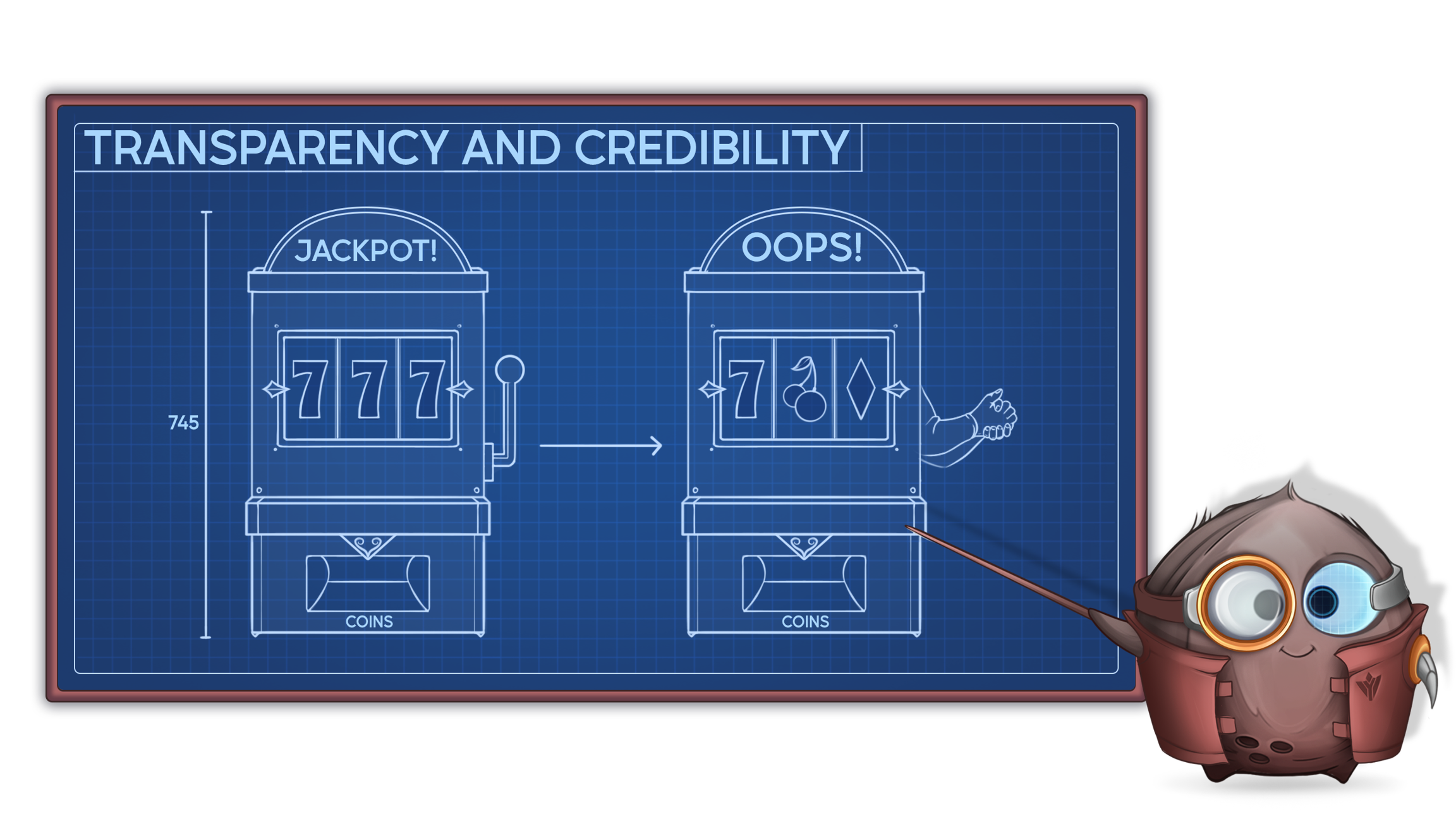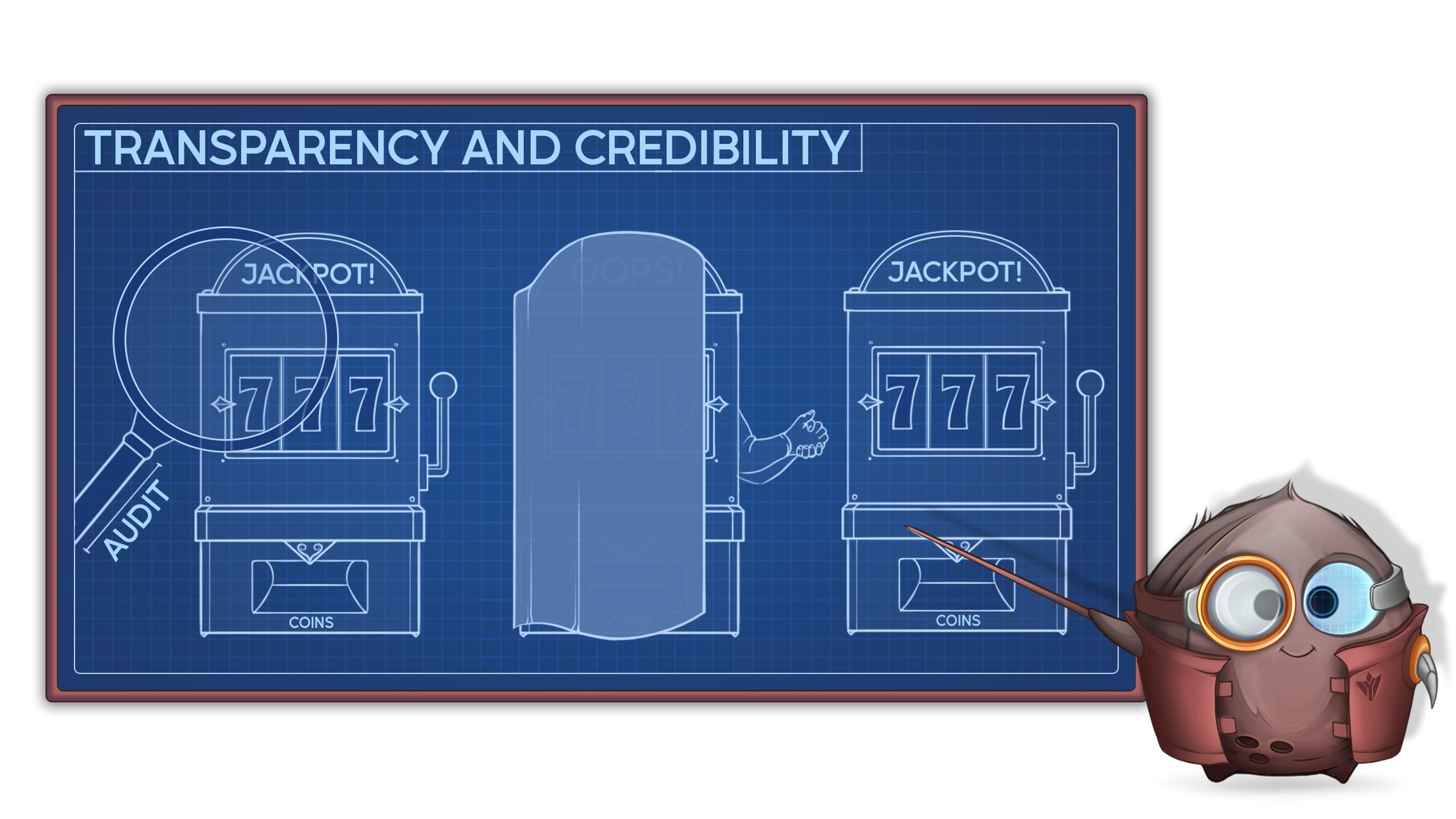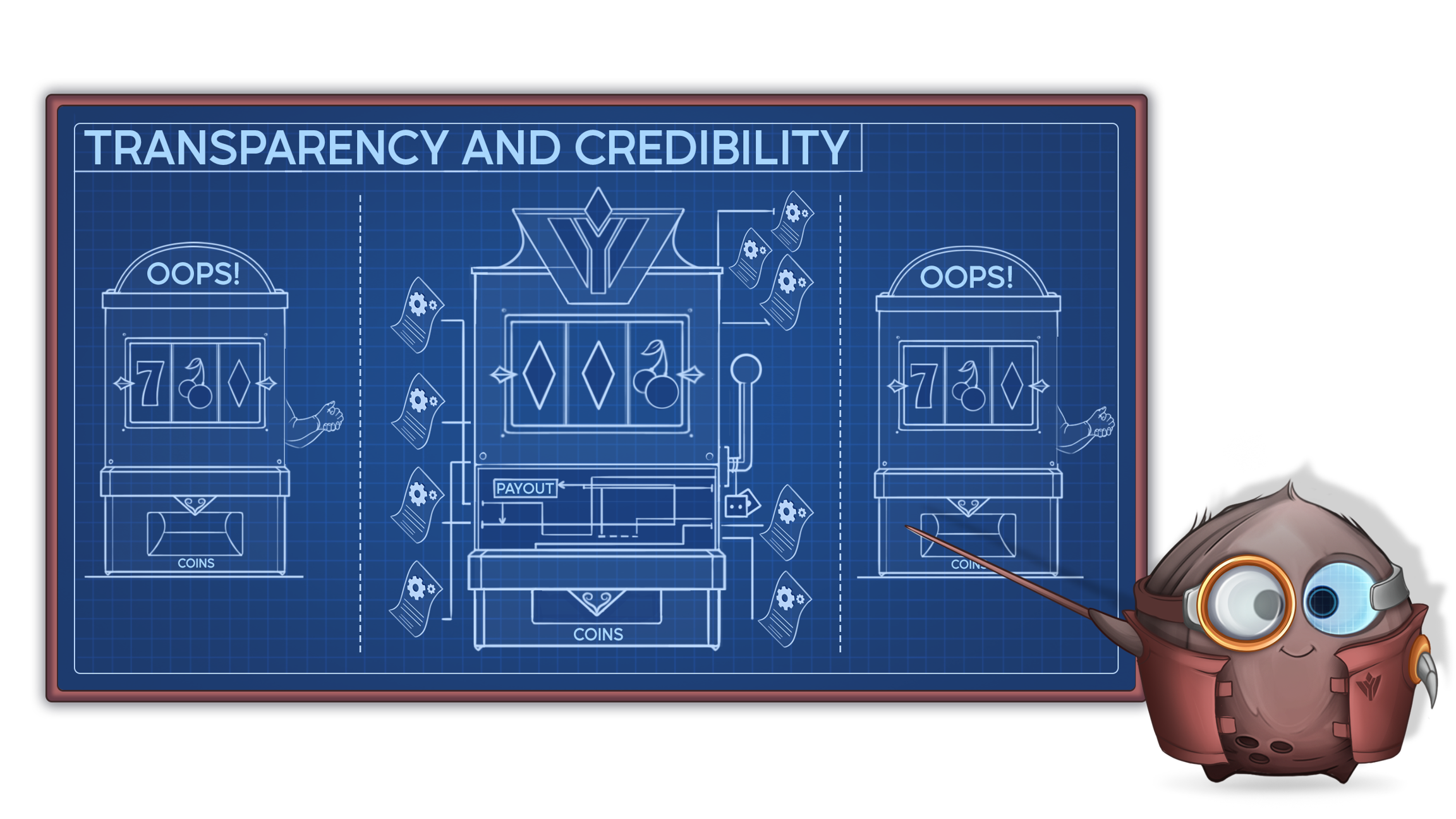🎰Accountability & Transparency
Addressing the credibility and assurance gaps in the contemporary NFTs
The Casino Analogy: A Lesson in Transparency
The adage "casino always wins" is a staple of gambling industry. A well-known phrase that resonates with many. Most of us have encountered or repeated it at least once in their lives.
Interestingly, this statement does not hold true for all casinos, particularly those operating under strict regulations in regions like the European Union, where the casino business undergoes as much scrutiny as the banking sector.

Drawing from our own experience in the European gambling industry, we can attest that all algorithms used in the licensed casinos were subject to regular audits, all floor operations were recorded and reported to government entities, all gaming tables were managed by certified third-party programs, and the branch operators employed sophisticated tracking systems to monitor staff, chips, and cards. This high level of scrutiny was in place not only for the casino owners themselves but also for the regulators and other law enforcement agencies.
Contrary to popular belief, licensed casinos don't always stay in profits, the businesses operate on mathematical models which simply win more than they lose (on average). The branch can often close the day with significant losses due to a couple of larger wins and numerous smaller cash outs by players.
In reality, if a casino always won, people would simply stop playing. Instead the gambling business tries to maintain a balance between winners and losers that regulators deem "fair" and always be ready to pay out winnings to lucky winners. In truth, if casinos always came out on top, patrons would cease to play. Instead, gambling businesses aim for a balance between winners and losers, striving for an equilibrium weighted in their direction by a margin deemed acceptable by regulators and ensuring payouts to fortunate winners.
Despite these assurances, many players who lose in casinos or lotteries remain skeptical about the "fairness" of the game. This skepticism is often caused by lack of transparency in the inner workings of the algorithms and systems in place. The "casino always wins" mentality continues to persist, fueling doubts about the transparency and trustworthiness of such establishments and no marketing campaign will ever change this sentiment.
The Limitations of Traditional Audits
Even the current Web 2.0 auditing process has its limitations. While licensed casinos undergo regular audits and adhere to strict regulations, the potential for any algorithm or server to be swapped out between audits still exists. This creates an environment where players can never truly trust the fairness of the machines they play.

Blockchain technology, having addressed transparency concerns in finance, offers trust solutions amidst numerous business failures in risk management. And yet, there seems to be a lack of interest in initiating a similar shift in the gambling/gaming sectors.
Imagine a slot machine running on Java code that can be updated by a centralized private entity at any time. It is impossible to guarantee the fairness of each player's roll, even with a fully explained transparent algorithm; the machine remains a black box. However, if the slot machines were operated by a smart contract that players could inspect in the same way, and which is known to be fair and unchangeable, players' perceptions could begin to shift in a favorable direction. Blockchain technology, once again, offers a solution to a problem that persists from the Web 2.0 era.
The Need for Smart Contract-Based Game Logic
The prevailing dynamics of NFT gaming leave much to be desired. Many games, such as the coin flip projects, operate with a hidden mechanism that can be easily rigged. In an unregulated market like this, there are numerous ways to exploit players unfairly. To address this issue, even simple games like coin flips or rock-paper-scissors must be moved to smart contracts and their source code made public.

Important note: making the game logic public does not imply relinquishing ownership or licensing rights. Companies can make the algorithm layer of their system public while still retaining their code's rights. They can take legal action against anyone who attempts to copy it without permission. This way, a transparent layer can be implemented without compromising intellectual property, ensuring that trust and fairness are upheld while protecting the interests of the game creators.
The Paradigm Change
The future of NFT gaming hinges on pivoting towards smart contract-based game logic. This stands in contrast to the rudimentary approach of merely tethering a Web3 wallet to a server operating on Web 2.0 randomization tools or resorting to SDKs with "fairly" constructed transactions.
By embracing transparent and immutable smart contracts logic, the gaming industry can foster a more trustworthy and equitable environment for players and developers alike. A similar transformation awaits lotteries and other systems revolving around the fairness of chance.
Last updated